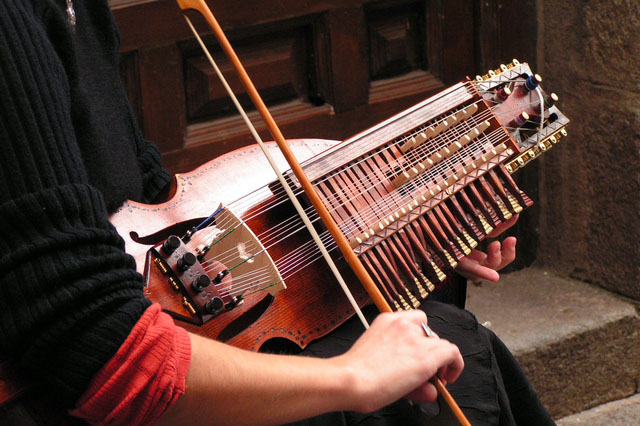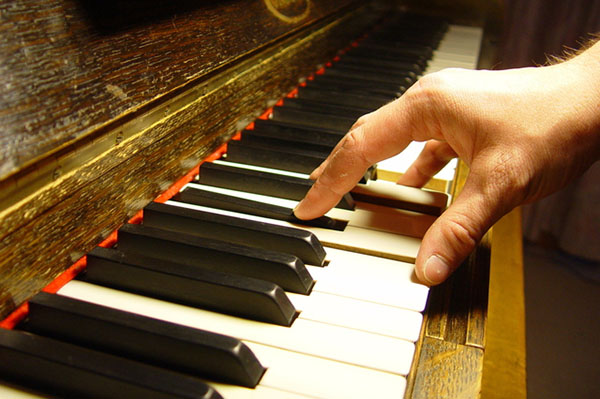How to Get Your Kids Playing Music for the First Time
Getting your kids playing music is one of the best ways to encourage brain development in children, as well as encourage a closer connection with God.
If you’re like most parents, you want what’s best for your child and the above findings have probably sparked your attention. Improving your child’s academic abilities through music lessons is an excellent way to increase your child’s chances of enjoying and excelling in school. Here are some tips for how to keep your child motivated while learning to play an instrument:
Pick a Suitable Instrument

It’s advisable to allow your child to choose the instrument he or she will be learning as this will likely increase their motivation to practice. However, you also want to be sure you’re setting your child up for success.
Choosing child-friendly instruments will prevent young musicians from becoming overwhelmed by the skills needed to create a good sound. Some examples of child-friendly instruments are piano and ukulele. Since piano is such a visual instrument, children often have an easy time learning where the different note are located. Ukulele is less visual, but children typically have an easier time learning to hold this instrument than a cello, for example.
If your child has shown interest in learning guitar, make sure they choose a model that suits their frame. Take a look at this article to learn more about the best guitars for small hands.
Remember that choosing the right instrument will depend on the unique preferences of your child. Just because an instrument may seem more difficult than typical child-friendly instruments doesn’t mean children are unable to excel at that instrument. Before you make your final decision, head to a music store and try a few different instruments out to help your child make the right choice.
If you’re imagining your child playing in sacrament meeting be aware that church policy dictates, “Instruments with a prominent or less worshipful sound, such as most brass and percussion, are not appropriate for sacrament meeting.”
And while other instruments may not be traditionally used in sacrament meeting the only additional policy is that, “If other instruments are used, their use should be in keeping with the spirit of the meeting.” But often those who play other instruments become very useful for stakes during concerts or cultural celebrations, so try not to limit yourself.
Provide structure

Structure is necessary to optimize brain development in children. If children were allowed to choose how to spend their school days, they wouldn’t learn nearly as much as they do with the help of a teacher.
Psychologists agree that providing structure will lead to better learning in children. This is why you’ll need to do some experimentation to find the right balance between being involved in your child’s practice sessions, and giving them freedom to make their own creative choices.
To get started, try creating a calendar that outlines when your child will need to practice. This will allow them to learn the importance of dedicating time towards learning their instrument and will lead to sophisticated time management skills.
Kids playing music relies on maintaining the “fun” quality of learning an instrument, so remember to keep practice time short when children are very young. Young children don’t have long attention spans, so they’ll struggle with focusing on one task for a long period. As your child gets older, you can gradually increase their practice time.
Choose appropriate songs

Your child’s music teacher will likely choose most of the songs they learn, but nobody knows your child’s music tastes like you do. If you’re aware of a song you know your children will enjoy learning, be sure to suggest it to their music instructor. Playing preferred songs will lead to more motivation to practice, and as a result, more benefits to be experienced.
If your child doesn’t listen to music on his or her own, try incorporating songs from their favorite movies or television shows. For example, if Disney’s Frozen is a household favorite, learning “Let it Go” would be a great song to start with. Additionally, teaching your child their favourite hymns, such as “I Am a Child of God” and “Children All Over the World” is an excellent way to encourage both musical and religious engagement. The Simplified Hymn Book can help make learning these songs easier.
One of the best things about music is that it can be broken down and made easier depending on the needs of a student. Even Beethoven’s symphonies, which are undeniably complex, can be broken down into easier parts. For example, a very young child who is just beginning to play piano will be able to learn the opening melodic theme from Beethoven’s Fifth Symphony with some dedicated practice. Choose music that will challenge them to push themselves, but won’t be so difficult that they become discouraged.
Hopefully, these tips will prove to be useful as your child begins the process of learning a musical instrument. Ensuring your child remains intrinsically motivated by keeping the material challenging (but not impossible) and incorporating their favorite songs or hymns into their lessons will allow them to excel.
Kids playing music encourages brain development and an increased connection with the church in children. Take advantage of these tips and you’ll have music flowing throughout your home in no time.


